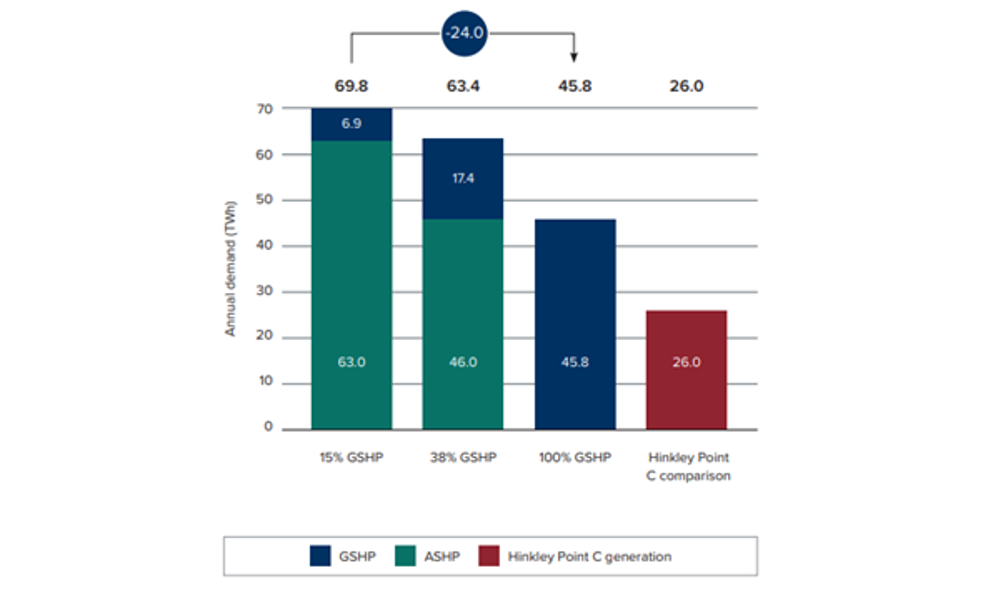Commissioned by UK ground source heat pump manufacturer Kensa and delivered by energy consultancy Element Energy, the Low Carbon Heat Study explores various possible future combinations of heating options for the UK’s housing stock. These include air source heat pumps (ASHPs), ground source heat pumps (GSHPs) and heat batteries. The report models the impact different mixes of the technologies will have on electricity demand, alongside things like EV charging.
Related content
According to the report, a networked approach using GSHPs would give UK buildings access to the most energy-efficient heating. The study also found that networked GSHPs could be almost 20 per cent cheaper (£290/year) to install and operate than ASHPs on an annual basis and would consume 40 per cent less electricity to provide the same heat.
“Achieving widespread rollout of heat pumps in homes up and down the country is key to the UK reaching net zero,” said Sam Foster, partner at Element Energy.
“This exciting study has generated some fascinating insights into the benefits that greater deployment of ground source heat pumps could provide to the UK’s energy system by mitigating much of the need for costly investments in electricity generation and network upgrades. We have shown how individual households can benefit from ground source heat pumps and heat flexibility when these are deployed at scale.”
With total GSHP penetration, it’s claimed that Britain’s annual electricity consumption could be reduced by up to 24TWh a year, which is close to the estimated total annual output of Hinkley Point C. These figures represent maximum theoretical savings in a 2050 scenario whereby 100 per cent of the UK’s heat pumps are ground source, and householders are engaged to varying degrees in demand shifting/heat flexibility, with 50 per cent of homes having had a heat battery installed.

“Element Energy’s study demonstrates well the benefits of ground source heat pumps, including lower household bills and energy consumption, reduced strain on the electricity grid, and billions saved in energy infrastructure upgrades and investment,” said Dr Matthew Trewhella, CEO of The Kensa Group. “Critically, the study demonstrates that by taking a networked approach and leveraging private-sector finance, it is possible to deliver these benefits without requiring householders to pay more upfront.
“However, as a British manufacturer committed to supporting the government's climate targets and developing a domestic supply chain, the policy environment remains extremely challenging for us…If the UK is to see the benefits of ground source energy, it is vital the government starts to see this technology as a long-term infrastructure investment – a 21st century replacement for the gas grid – and develops policy accordingly.”











PMI falls as manufacturers feel the squeeze
17 months or two and a half years - which is it?